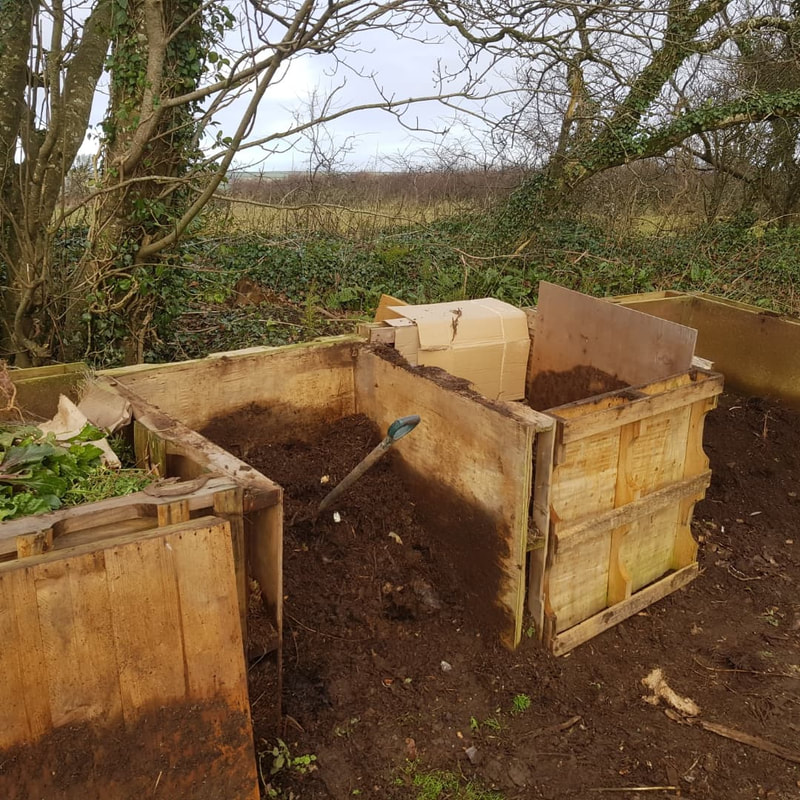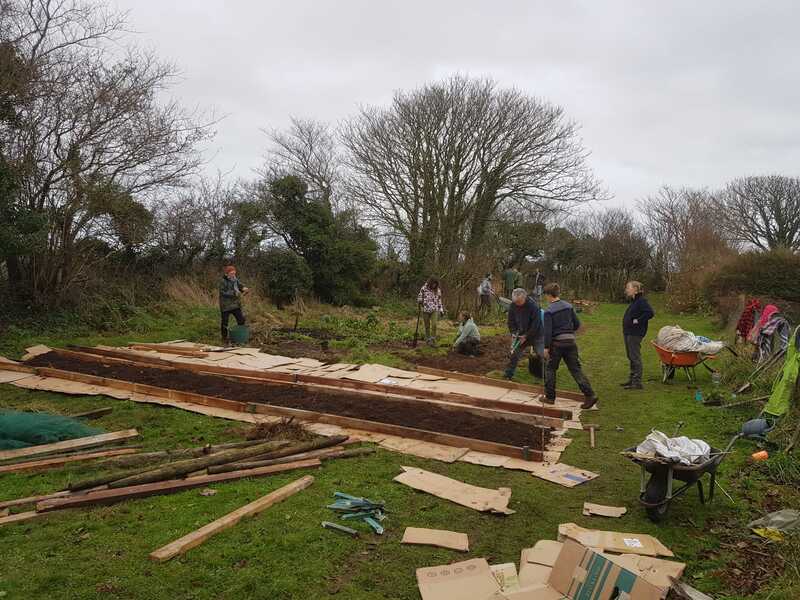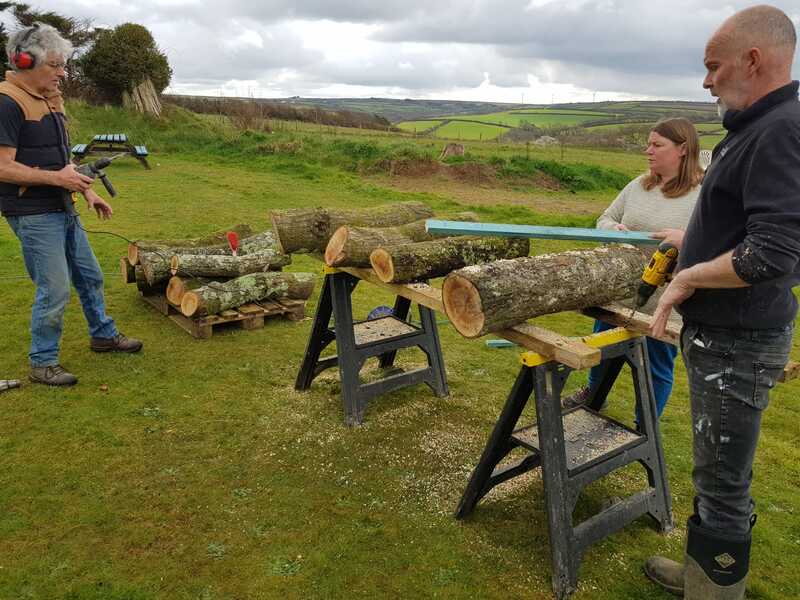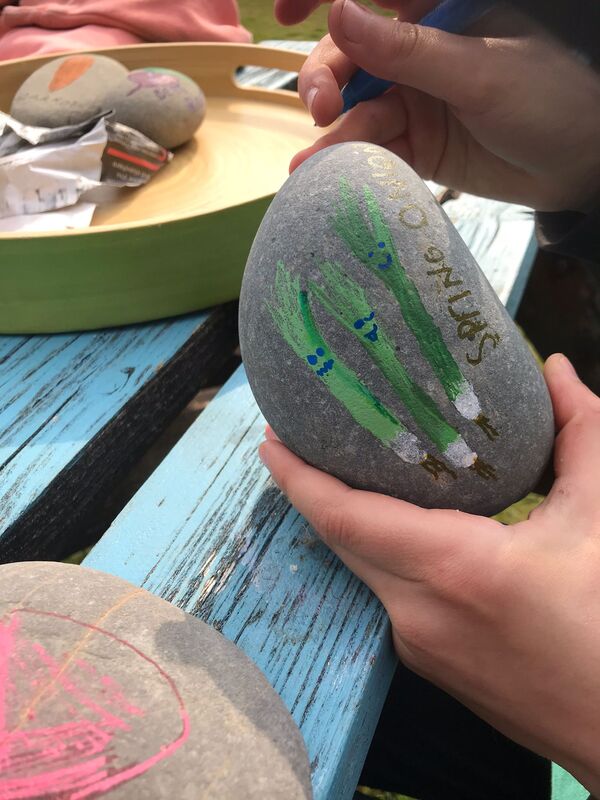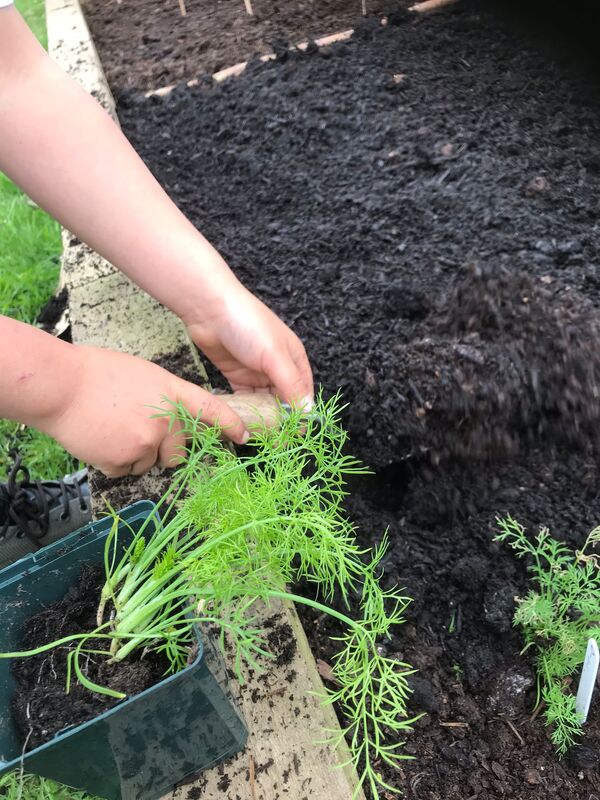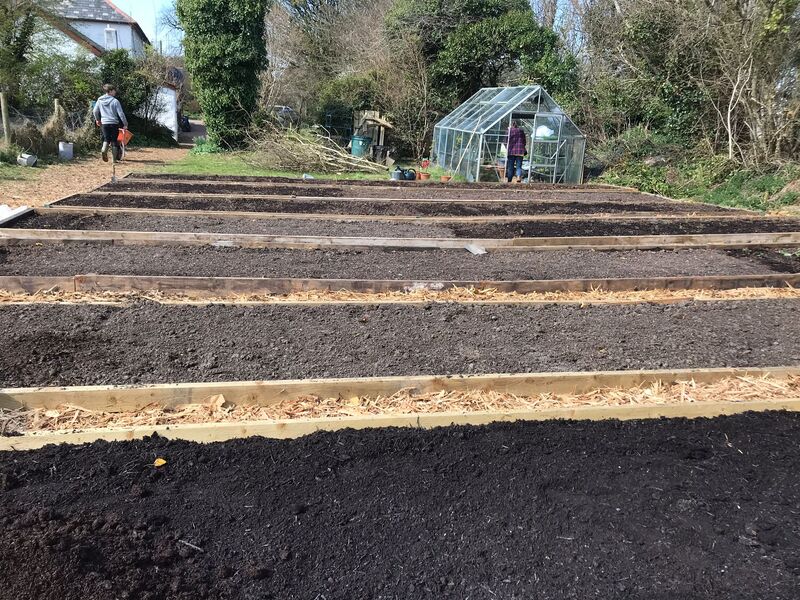Forest Garden & No-Dig
We are planning to develop a Forest Garden here at Berry Park. We are only in the planning stages at the moment, and it will be several years before we can enjoy the 'fruits of our labour', but we are really excited about getting started.
So what is a Forest Garden?
‘A forest garden is a garden modelled on the structure of young natural woodland, utilising plants of direct and indirect benefit to people - often edible plants. It mainly contains large trees, small trees, shrubs, herbaceous perennials, herbs, annuals, root crops and climbers – all planted in such a way to maximise positive interactions and minimise negative interactions, with fertility maintained largely or wholly by the plants themselves. The plants in the forest garden are mainly perennial, which gives the system its long-term nature.’
(Martin Crawford, Creating a Forest Garden, 2010)
So what is a Forest Garden?
‘A forest garden is a garden modelled on the structure of young natural woodland, utilising plants of direct and indirect benefit to people - often edible plants. It mainly contains large trees, small trees, shrubs, herbaceous perennials, herbs, annuals, root crops and climbers – all planted in such a way to maximise positive interactions and minimise negative interactions, with fertility maintained largely or wholly by the plants themselves. The plants in the forest garden are mainly perennial, which gives the system its long-term nature.’
(Martin Crawford, Creating a Forest Garden, 2010)
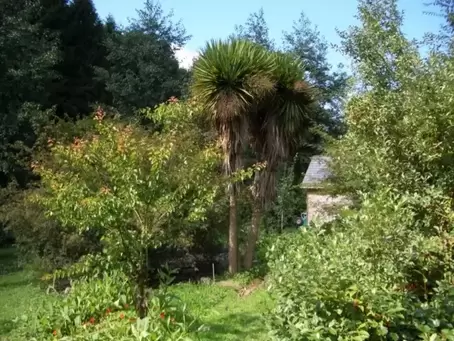
Martin Crawford's Forest Garden,
Dartington
Dartington
Why a Forest Garden?
A huge part of the Berry Park ethos is based on building a resilient community in the face of rapid climate change.
Establishing a forest garden is an important part of that. As Crawford states in his 'Creating a Forest Garden' book – in the event of a sudden, sharp increase in climate change – ‘your forest garden might just keep you alive’.
The benefits of Forest Gardening are summarised by Crawford as: Working with the land instead of against it, low maintenance and high efficiency, a wide range of products yielded, resilience to climate extremes and changes of weather, biologically sustainable, environmentally beneficial, aesthetically beautiful - and finally - some commercial possibilities.
We are very lucky to be working with Conrad Batten Design on developing our Forest Garden. Conrad is a friend of the project and has previously worked with Martin Crawford. We also benefit from the experience & practical skills of one of our members - Steve Compton - of Rural Stonework & Landscapes, who has worked with Conrad on several large-scale garden building projects.
A huge part of the Berry Park ethos is based on building a resilient community in the face of rapid climate change.
Establishing a forest garden is an important part of that. As Crawford states in his 'Creating a Forest Garden' book – in the event of a sudden, sharp increase in climate change – ‘your forest garden might just keep you alive’.
The benefits of Forest Gardening are summarised by Crawford as: Working with the land instead of against it, low maintenance and high efficiency, a wide range of products yielded, resilience to climate extremes and changes of weather, biologically sustainable, environmentally beneficial, aesthetically beautiful - and finally - some commercial possibilities.
We are very lucky to be working with Conrad Batten Design on developing our Forest Garden. Conrad is a friend of the project and has previously worked with Martin Crawford. We also benefit from the experience & practical skills of one of our members - Steve Compton - of Rural Stonework & Landscapes, who has worked with Conrad on several large-scale garden building projects.
No-Dig Organic Gardening
As well as establishing a Forest Garden, the Berry Park Community plans to develop a large, organic fruit and vegetable garden, which we hope will go some way towards sustaining members of the community. This, in turn, will have a positive impact on our carbon emissions by reducing food miles.
We plan to combine No-Dig and Permaculture methods to improve soil health and benefit biodiversity. The 'No-dig' approach mirrors nature’s way of caring for soil and the soil responds by caring for plants.
Although none of us can claim to be experts, most of us have some growing experience, and are closely following the practises of No-Dig guru, Charles Dowding. Given that Charles runs a no-dig market garden in Somerset, it makes sense to tap into his 38 years of experience of growing in a similar climate.
As well as establishing a Forest Garden, the Berry Park Community plans to develop a large, organic fruit and vegetable garden, which we hope will go some way towards sustaining members of the community. This, in turn, will have a positive impact on our carbon emissions by reducing food miles.
We plan to combine No-Dig and Permaculture methods to improve soil health and benefit biodiversity. The 'No-dig' approach mirrors nature’s way of caring for soil and the soil responds by caring for plants.
Although none of us can claim to be experts, most of us have some growing experience, and are closely following the practises of No-Dig guru, Charles Dowding. Given that Charles runs a no-dig market garden in Somerset, it makes sense to tap into his 38 years of experience of growing in a similar climate.
